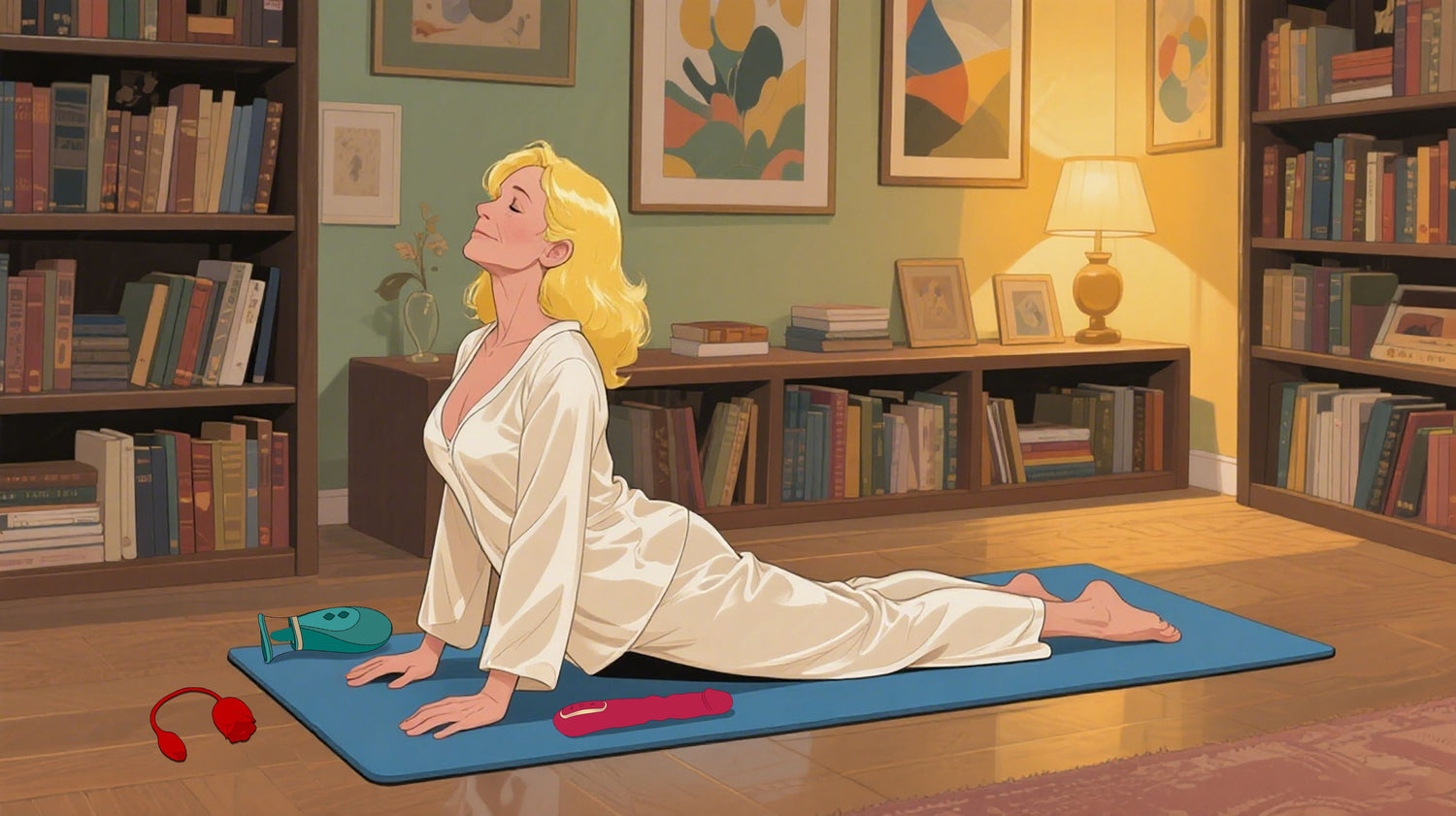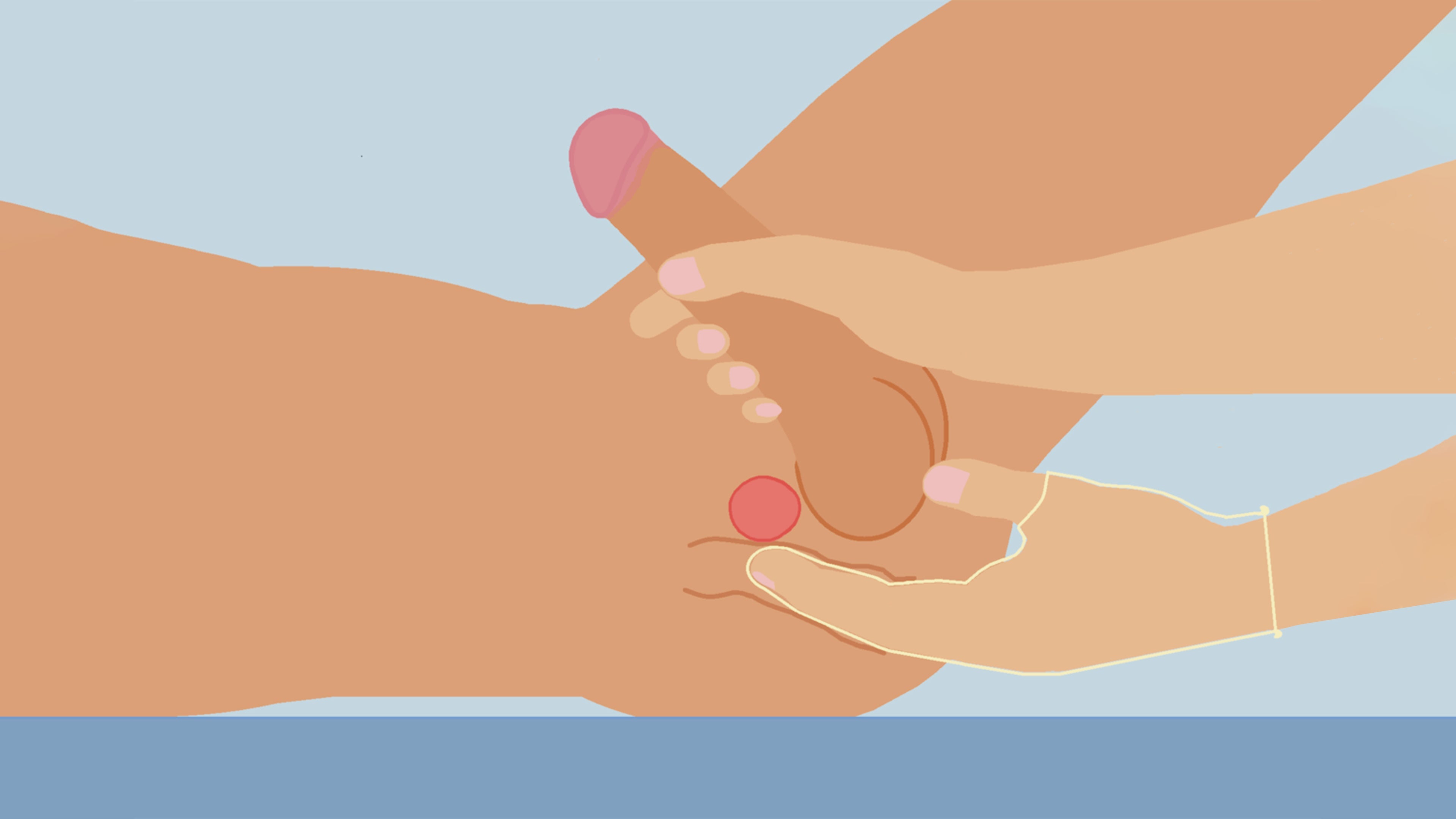Menopause is a big life change, but it does not mean the end of your sex life. For many, sex just starts to feel different. That’s okay. What you feel is real, and there are helpful ways to deal with it. One of those ways might be sex toys. Yes, really. Let’s take a closer look.
How Menopause Affects Your Sex Life
When menopause begins, your ovaries stop making as much estrogen. Estrogen is a hormone that keeps your body ready for sex. Without it, some changes happen:
- Your vagina can feel dry or tight
- You may feel pain during sex
- It can be harder to get aroused
- Orgasms may take longer or feel weaker
- You might feel tired or moody more often
These changes are very common. Some people feel fine. Others feel frustrated, sad, or confused. Both are normal. You’re not alone.
Sex can start to feel like a chore. Your body might not react the way it used to. You might not want sex as often. You may worry about how your body looks or feels. Chronic illness, injuries, and sleep problems can also make things harder.
Some people give up on sex. But if you still want pleasure, there are many safe and smart ways to get it again.
How to Improve Your Sexual Health Before, During, and After Menopause
You don’t need to fix everything at once. Start with small, helpful changes that make your body and mind feel good.
- Move your body. Walking, dancing, swimming, or even gentle stretching helps blood flow. That means better energy, better mood, and better sex

Talk to your doctor. If sex feels painful or your sex drive drops a lot, ask a healthcare provider. They may suggest:
- Hormone therapy (for hot flashes, dryness, or mood changes)
- Changing your medications
- Using vaginal creams or tablets
- Trying other helpful products

Use lubricants and moisturizers. These are simple tools that can make sex feel much better. Lubricants help during sex. Moisturizers help even when you’re not having sex.

Try pelvic floor exercises. Kegel exercises make the muscles around your vagina stronger. Stronger muscles can make sex feel more satisfying. You can do them almost anywhere, anytime.
Take your time. You may need longer foreplay. That’s okay. The body needs more time to relax and feel pleasure. Tell your partner what you like.
Eat well and sleep enough. Your brain and body need rest and good food. Less sugar and more water can help. So can sleeping 7–9 hours each night.
Don’t smoke or drink too much. These habits slow blood flow and lower arousal. Cutting back can help you feel better in many ways.
Can Sex Toys Help?
Sex toys are not just for fun. They can also be useful tools, especially during and after menopause. When natural responses change, sex toys can fill the gap. They can help with arousal, orgasm, and body confidence.
Why use sex toys?
- They help with arousal. Vibrations or direct pressure can help your body feel more awake and sensitive again.
- They ease dryness. Some toys work well with lubricants and allow more comfortable play, even if you feel dry inside.
- They improve blood flow. Regular use of toys can help bring blood back to the vaginal area, keeping the tissues healthy and elastic.
- They boost self-awareness. You learn what feels good now—not 10 years ago, but today. That helps you communicate better with your partner.
- They help with solo pleasure. You don’t need a partner to enjoy sex. Toys can help you relax, sleep better, and feel more alive.
- They reduce pressure. Sometimes using a toy removes the pressure to "perform" during sex. That can bring back the joy.

What types of toys work well during menopause?
Not all toys are the same. Your body’s needs may be different now, so choose carefully.
- Clitoral vibrators: These are helpful if penetration feels uncomfortable. Many people with low sex drive respond better to clitoral stimulation.
- Wands: These are larger vibrators that provide steady pressure and can help with deep relaxation.
- Internal vibrators: These can be used slowly and gently to reintroduce vaginal play.
- Dilators: These are not just for pleasure. They help stretch the vaginal walls gently and reduce tightness or pain over time.
Note:
-
Always use the right lube for your toy. For example:
- Silicone toys: Use only water-based lube
- Glass or metal toys: All lube types are okay, but clean them well
- Rubber or jelly toys: Use water-based only; they break down more easily
- After each use, wash the toy with warm water and mild soap. Dry it well. Store it in a clean, dry place. This helps avoid irritation or infection.
Summary
Sex may change after menopause, but pleasure doesn’t have to stop. Your body is different now, and that’s okay. With the right tools, care, and attitude, you can feel good again—alone or with a partner. Sex toys are one of many helpful ways to explore what your body still loves.
FAQs
Q1: Do I still need to use condoms after menopause?
Yes, you do if you are not in a monogamous relationship. Menopause does not protect you from sexually transmitted infections (STIs). Condoms are still the best way to stay safe. Vaginal dryness after menopause may cause small cuts during sex, which can increase the risk of infection.
Q2: Is it normal to feel less interested in sex after menopause?
Yes, it is normal. Many people feel less desire due to lower hormone levels, stress, sleep problems, or health changes. But if this change bothers you, you can talk to a doctor. There are ways to bring back interest and comfort.
Q3: Can sex still feel good after menopause?
Yes, it can. What feels good may change, but pleasure is still possible. You may need more time to get aroused. You may enjoy new kinds of touch, positions, or toys. Talking with your partner helps too.
Q4: Are there medicines for low sex drive in women?
Yes. Two medicines—flibanserin and bremelanotide—are approved for premenopausal women with low sex drive. These may not be for everyone and can cause side effects. Some women also try testosterone, but it is not officially approved for this use in women. Always ask your doctor before trying anything.
Q5: What if I feel sad or stressed about changes in my sex life?
That is very common. You may feel different about your body or your relationship. It’s okay to ask for help. Talking to a therapist or sex counselor can help you feel better and find new ways to connect.




Leave a comment
This site is protected by hCaptcha and the hCaptcha Privacy Policy and Terms of Service apply.